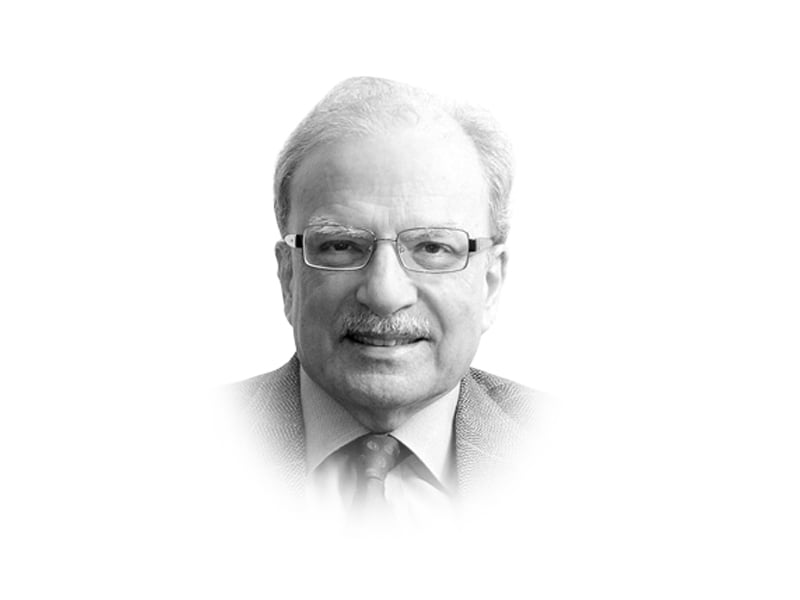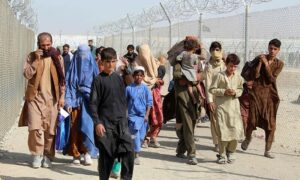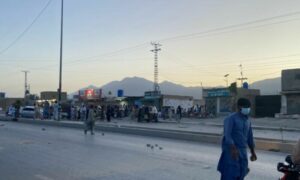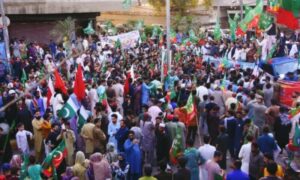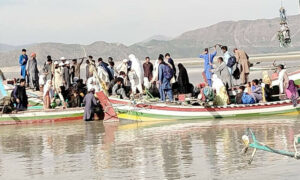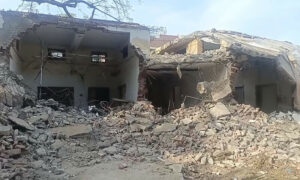Syria is often described as the Middle East’s pivot, affecting what happens around it. Its evolution needs to be watched and studied. The country is now dealing with its inglorious recent past and is planning for the future. Syria has shown that its citizens have limited tolerance for poor governance. Once those who are ruled become impatient with the quality of governance to which they are subjected, they can exact a high price from ‘those who’, when in positions of power. This has happened repeatedly in Pakistan when the military watching the performance of the civilian government intervened and directly ruled the country. Let me detail what is happening in Syria.
President Bashar al-Assad’s fall in Syria was sudden and unexpected even for those analysts who had been watching developments in the country for a long time. Three journalists who were covering events in the Middle East for The New York Times painted a grim picture of Syria while the Assad family ruled the country for more than half a century. The family was in power starting in 1951 when Hafez al-Assad, then a general in the army, mounted a coup and a year later took over as the country’s president. He governed the country with an iron hand, with zero tolerance for any opposition. He was succeeded in 2000 by his son, Bashar, who continued his father’s approach to governance. “For nearly all the years that the Assad family ruled Syria, silence reigned. No one spoke freely, fearful of who might hear. Everyone knew the consequences of dissent: disappearance into government’s prisons from which few ever returned,” wrote Vivian Yee, Raja Abdulrahim and Muhammad Haj Kadour in their coverage for The New York Times.
Sednaya was the most notorious of the many prisons that dotted Damascus and other major cities. The journalists quoted above continued with their story: “But as Saturday (December 7) turned to Sunday – the first day in more than five decades that dawn broke without an Assad in the presidential palace – the streets were loud with joy.” The state radio, freed from the government’s control, broadcast an announcement by a group of nine rebel groups on Sunday, December 8: “By the grace of God Almighty, the city of Damascus has been liberated, the tyrant Bashar al-Assad has been toppled, and all the unjustly detained people from the regime’s prisons have been released. Long live free and independent Syria for all Syrians.”
“We are targeting the system,” said Fadel Abdul Ghany, director of the Syrian Network for Human Rights. “The Assad regime is not just the man himself. We need to target the security forces and the army and the tools that Assad used to commit those crimes.”
The war in Syria that finally led to the rule by the Assad family has been a watershed for human rights work, in part because of the magnitude of the abuses committed. Matthew Mpoke Bigg provided some distressing information in a newspaper article. According to him, more than 200,000 civilians reported to have been killed in the civil war that lasted for a decade and a half, from 2011 to 2024. At least 15,000 people are believed to have died from torture or killed in the extensive prison system operated by the regime, and some 13,000 are still missing. “Even before he fell from power, we had enough documents to show beyond reasonable doubt his real power over the machinery of death that the Syrian state operated,” said Nerma Jelacic of the Commission for International Justice and Accountability.
Adding to these efforts is the work being done by other groups including a UN Syria Commission which has issued detailed reports and a group established by the UN General Assembly has also provided history of the past. A detailed effort is the one released by the International Court of Justice at The Hague which held a hearing after a complaint by Canada and the Netherlands, asserting that violations in Syria had been committed on a “massive scale”. But Syria is not a member of the court and not subject to its findings.
After an investigation into chemical attacks in 2013, French judges in 2023 issued an international arrest warrant for al-Assad that accused him of complicity in both crimes against humanity and war crimes. The US Justice Department charged two top Syrian military officials with crimes committed against Americans and others at a prison in Damascus. “Up until now, the doors to the court rooms have largely been closed,” said Balkees Jarrah, a lawyer and a senior official with the international justice programme at Human Rights Watch. “With sudden political change, there is a relatively open window, but a better future for Syria requires a comprehensive plan of justice.”
While prosecutions outside venues could play a role in bringing jussive to the country, especially in dealings with the brutal past, it is far more important to build the country’s own judicial system. A domestic system would better serve the people who were engaged in settling scores rather than thinking about the future. Outside involvement have had a powerful impact in other post-conflict societies, enabling citizens to witness justice at work, according to Stephen J Rapp, a former international prosecutor and former US ambassador at large for global justice. He was involved with Syria for more than a decade. “Wherever we have had a successful international justice process, the national cases were more helpful in allowing reconciliation.” To assist the domestic effort, one of the most prominent Syrian human rights leaders, Mouaz Moustafa, head of the Syrian Emergency Task Force, said that he was immediately returning to the country to help out with the process that was underway.
The administration that takes office in due time in Syria has a lot on its plate. The city of Aleppo is a good example of what it was before the advent of the rule by the al-Assads, what it became when the father and son governed the country, and what it could once again become once the new set of rulers have established themselves. Eight years after rebels that tried to bring the “Arab Spring 2011” type of revolution to Syria were driven out from the city, the speed at which the rebels captured the city was a pleasant surprise, said its residents. The streets were full of people with families reunited after years of war, or groups visiting the city for the first time in ten years.

